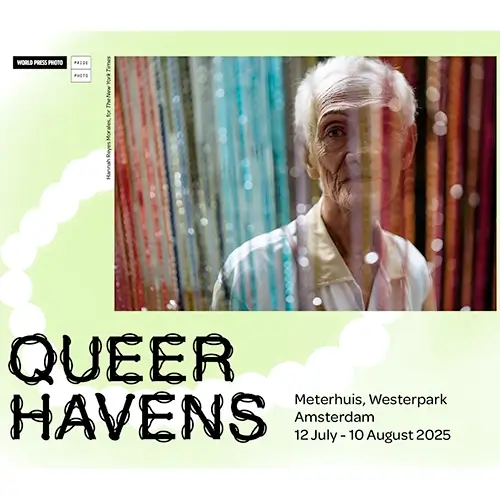

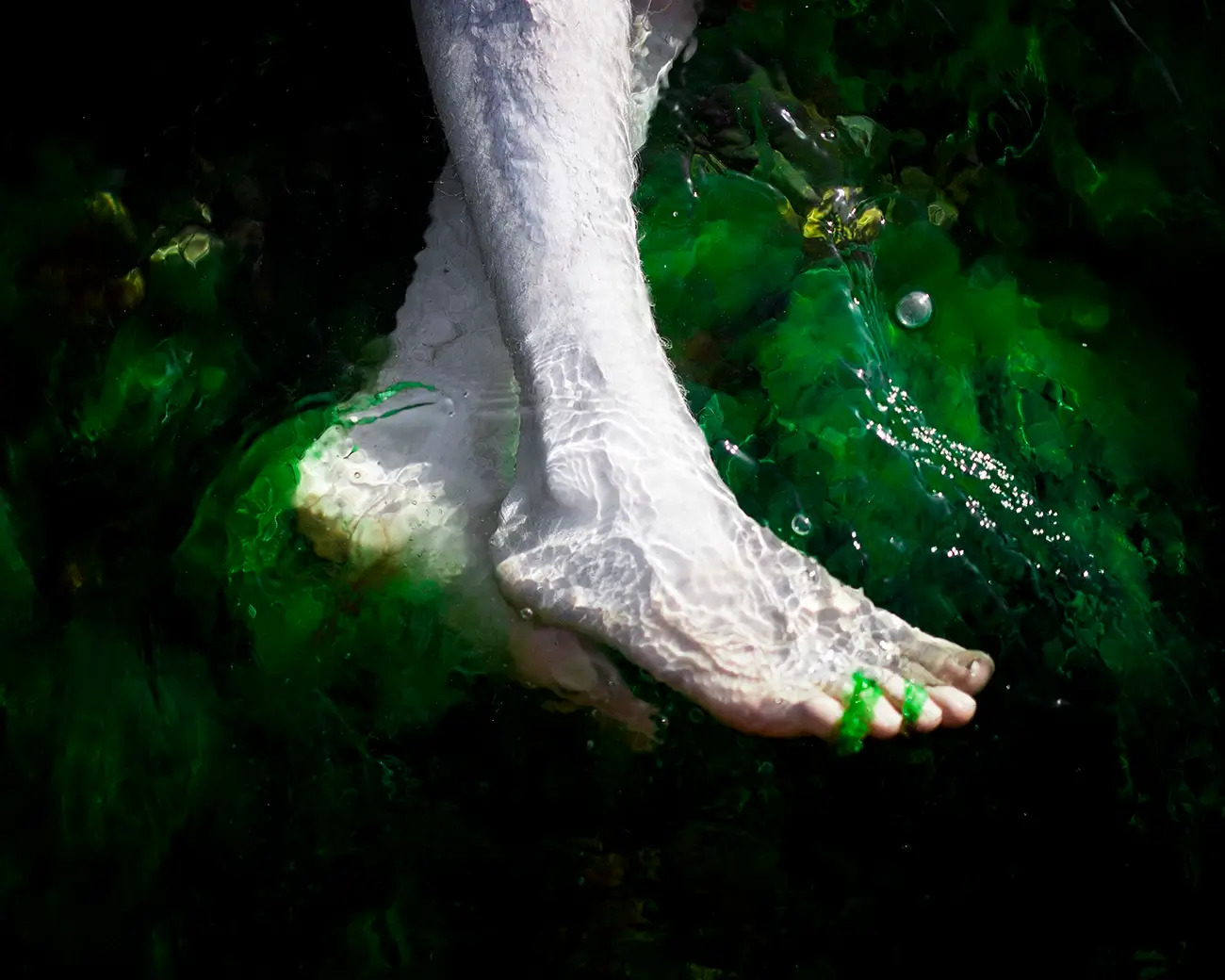
FATHOM © Cansu Yıldıran
FATHOM’ presents a series of staged documentary photographs honouring the stories of LGBTQIA+ individuals who have lost their lives in fatal homophobic attacks. The photographer works with individuals from the LGBTQIA+ currently living in Turkey to create these powerful images, drawing on modes of non-normative storytelling, and creating a connection between those who have been killed, and those who survive, visually representing the struggles and very real danger that the LGBTQIA+ community continues to face. ‘FATHOM’ is an exploration of queer identities, and a testament to resilience.
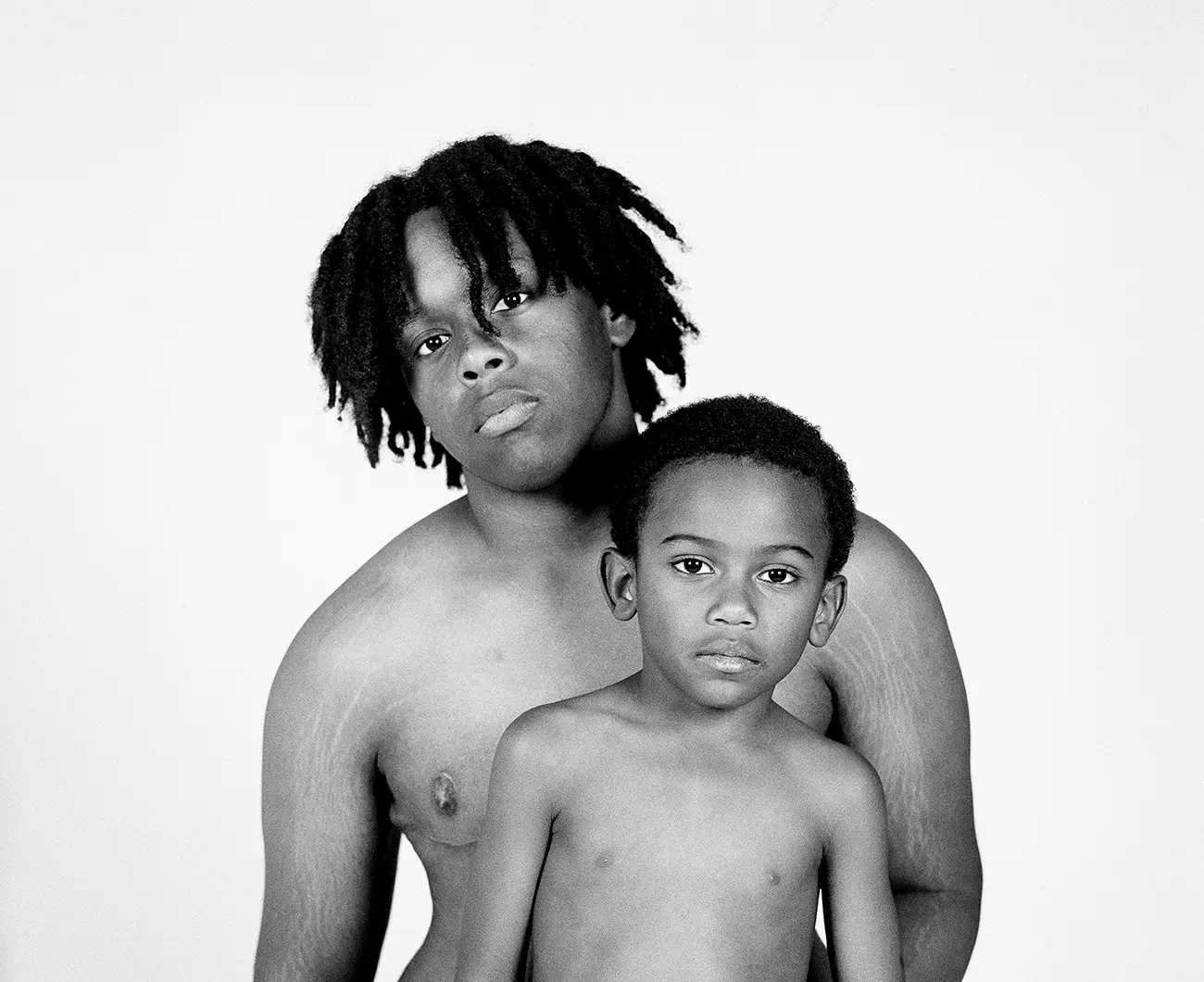
Kysaan & Ky © Ky Smiley
“Learning how to discuss my top surgery with my little brother has been simpler and more enlightening than I could have imagined. He helped me during recovery and I can not be more thankful. We have both benefited from our creation of a safe space for dialogue and I know it will help in both of our journeys of growth and acceptance.” - Ky Smiley
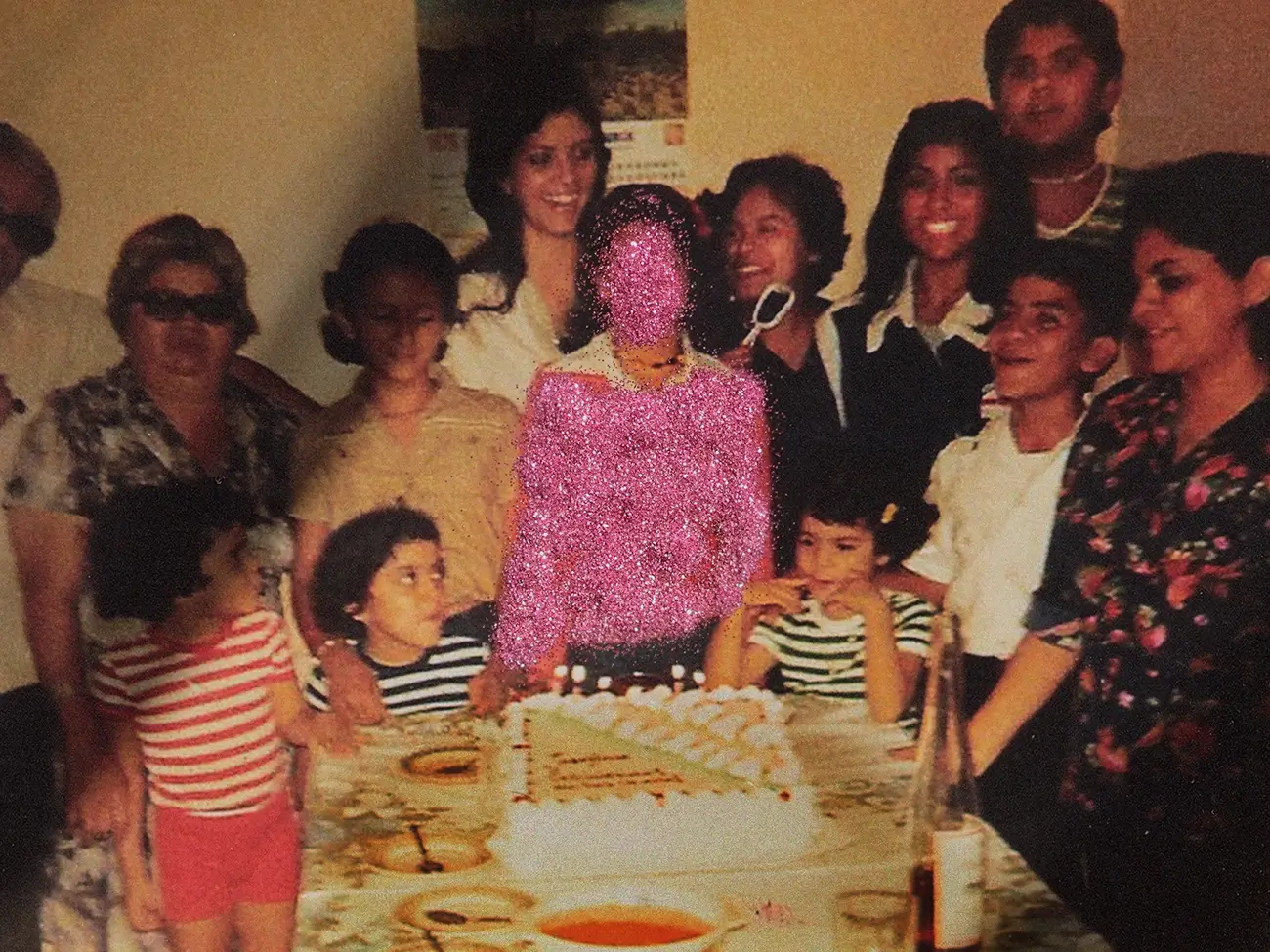
Grandparents, aunts and cousins reunited to celebrate Beatriz’s 15th birthday. Personal family archive. 1970s, Catia, Caracas, Venezuela from the project Dead Family © Andrés Gregorio Pérez
Andrés Gregorio Pérez’s project ‘Dead Family’ explores the invisibility of LGBTQIA+ identities in traditional family albums, which often reflect imposed, heteronormative expectations. Through creative edits of personal family photos, participants reimagine inclusive memories that celebrate their true selves and challenge dominant narratives.
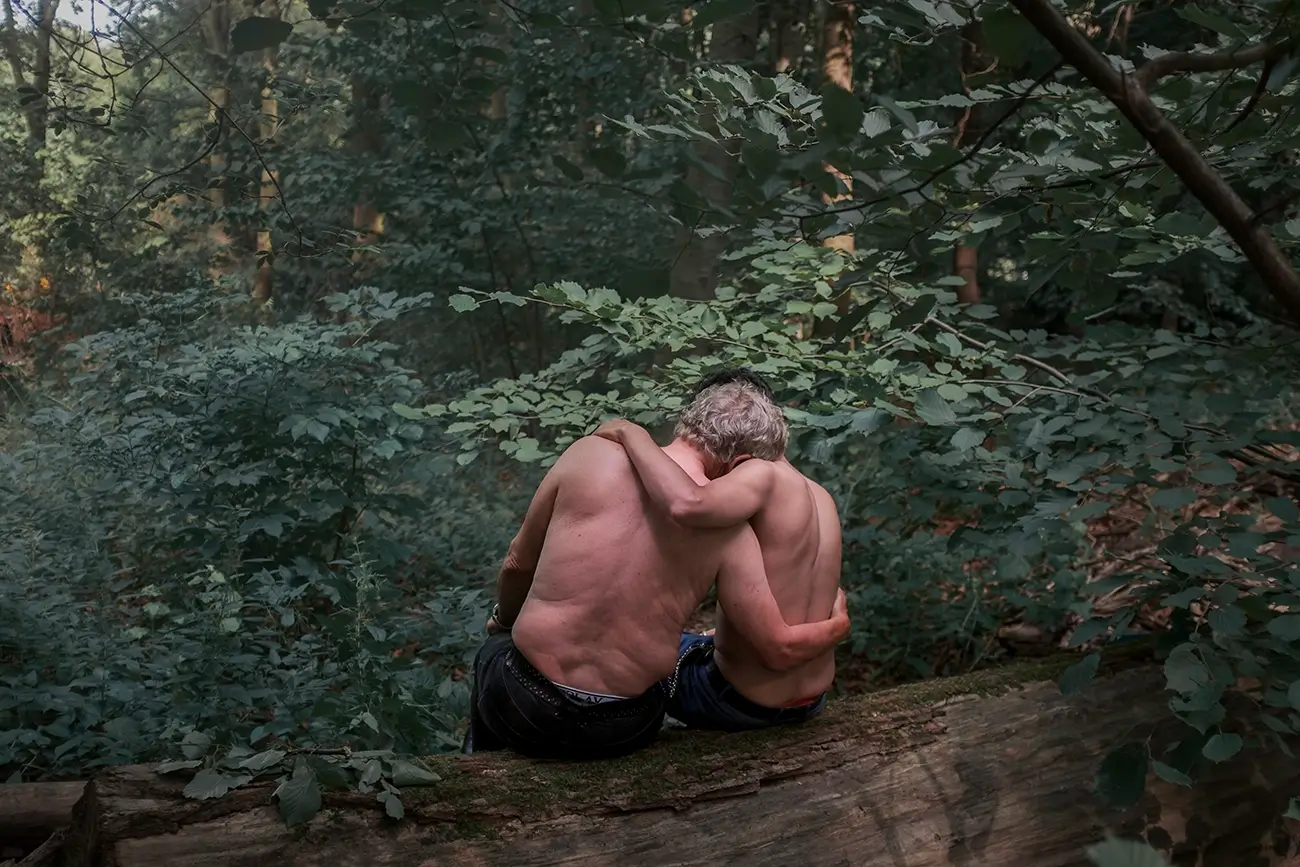
Jochen (71) and Mohamed (21; not their real names) sit in the Tiergarten, Berlin. Jochen fell in love after meeting Mohamed, then a sex worker in the park from the project Black Birds © Heba Khamis
Prostitution between consenting adults is legal in Germany, and German aid charities have reported a marked increase in the number of young migrants turning to sex work. While they wait for their documents, refugees are not allowed to work legally or attend school. The German government prioritizes assistance to refugees from countries with an ongoing war; those seeking asylum from countries without war are placed in a second category, where papers take longer to complete. This lack of employment opportunity creates a severe lack of choice for many, with some young men becoming sex workers, sometimes to fund a heroin addiction. The Tiergarten, a large park in central Berlin, is a popular meeting spot for male sex workers and older clients.
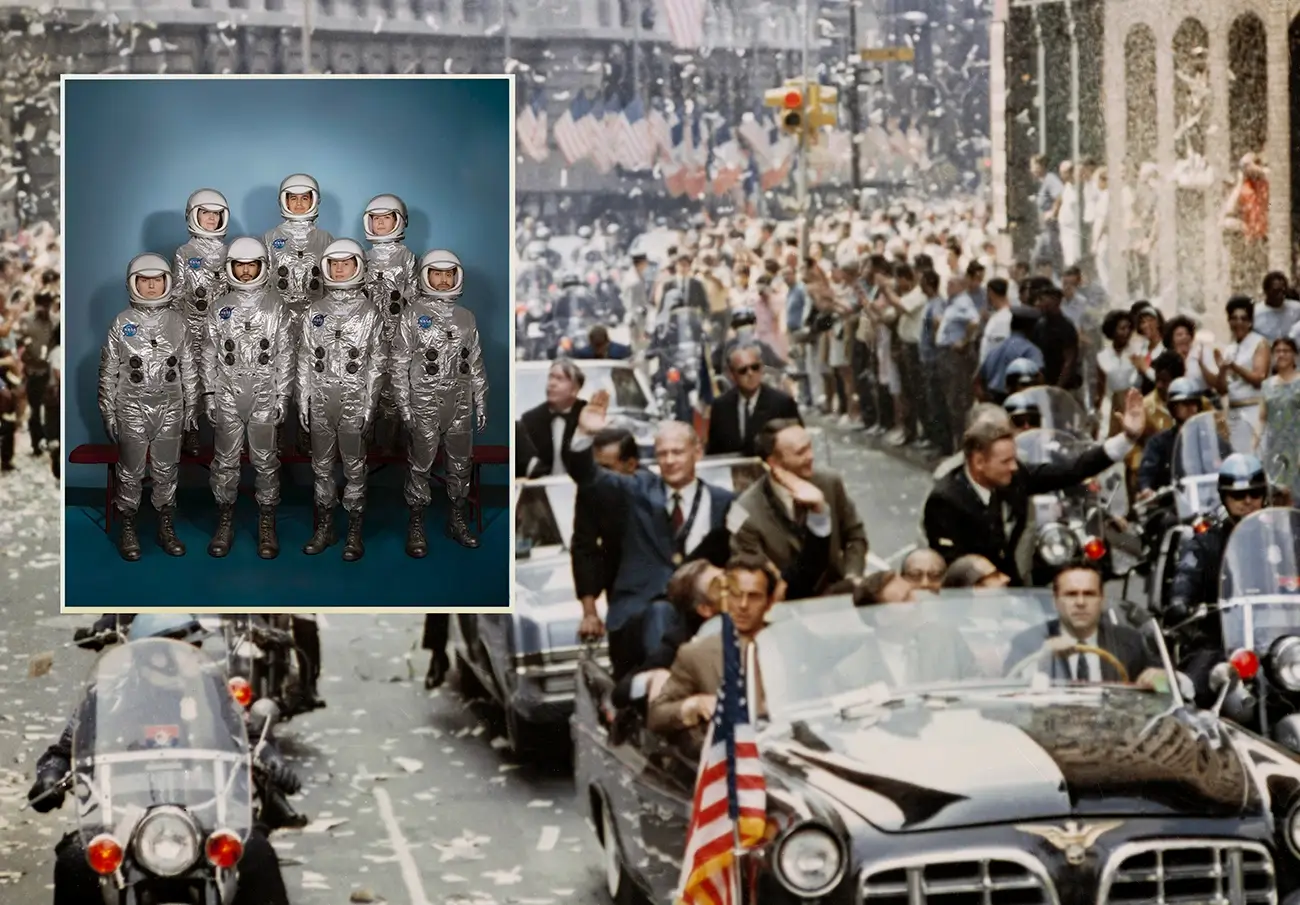
A staged recreation of the original Mercury Seven crew from 1960 photographed in New York City, United States from the project The Gay Space Agency © Mackenzie Calle
This project combines fiction with fact in order to confront the US space program’s historical exclusion of openly LGBTQI+ astronauts. In a review of the NASA and United States National Archives, the photographer found no documentation on the contributions of the queer community to the space program. The absence inspired her to imagine ‘The Gay Space Agency’, a diverse and inclusionary institution that commemorates and celebrates the history of queer astronauts. Project funded with support from the Magnum Foundation Counter Histories Grant.
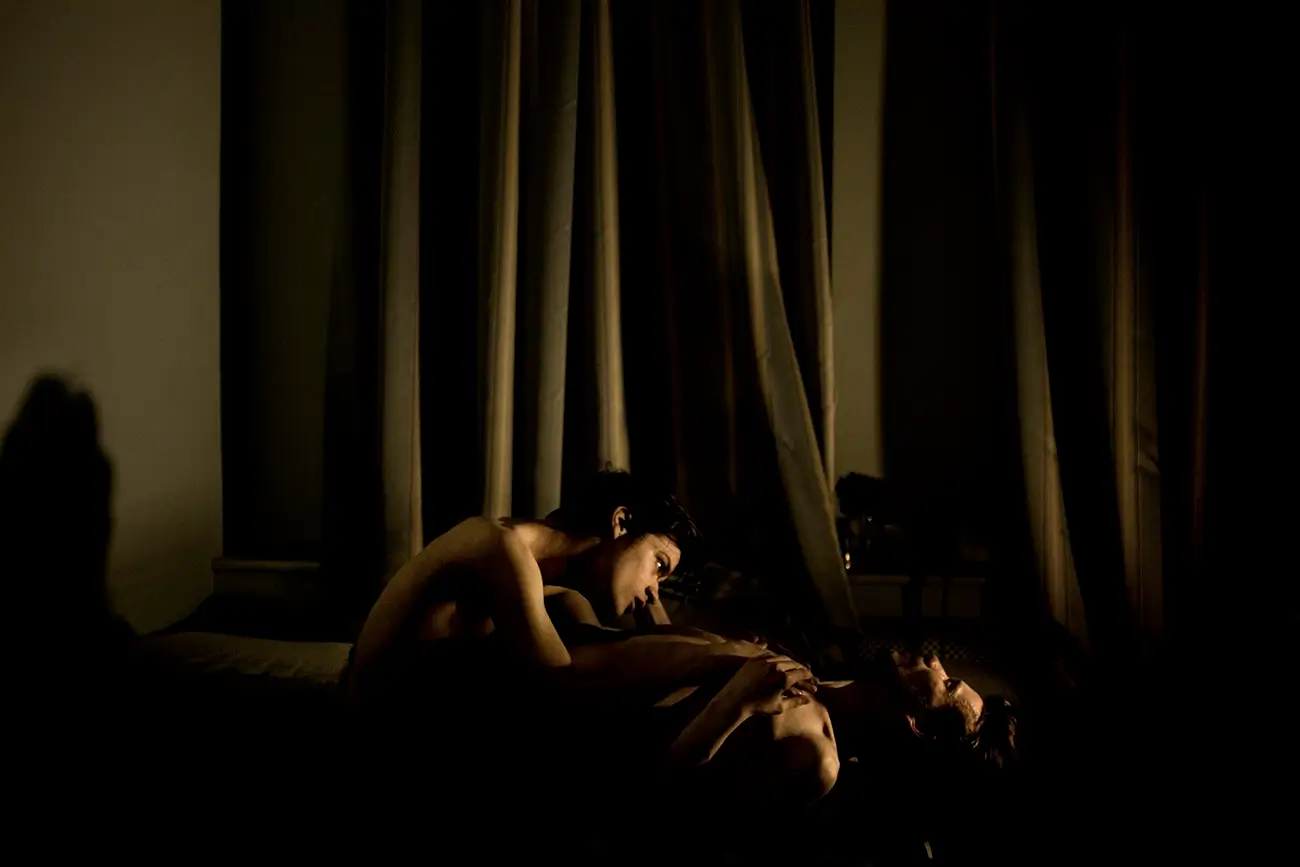
Jon (21) and Alex (25), a couple, share an intimate moment at Alex’s home in St. Petersberg, Russia on 18 May 2014 from the project Jon and Alex © Mads Nissen
This image became well known for LGBTQ+ rights in Russia and despite experiencing attacks and increasing discrimination, Jon and Alex continued their involvement in LGBTQ+ activism until Alex's death from heart failure in 2019. Homophobia in Russia has been rising following a 2013 legislation banning so-called “gay propaganda”. Since 2017, human rights groups and media have reported the imprisonment and torture of LGBTQ+ people in Chechnya, leading to the EU imposing sanctions on two Russian officials in 2021.
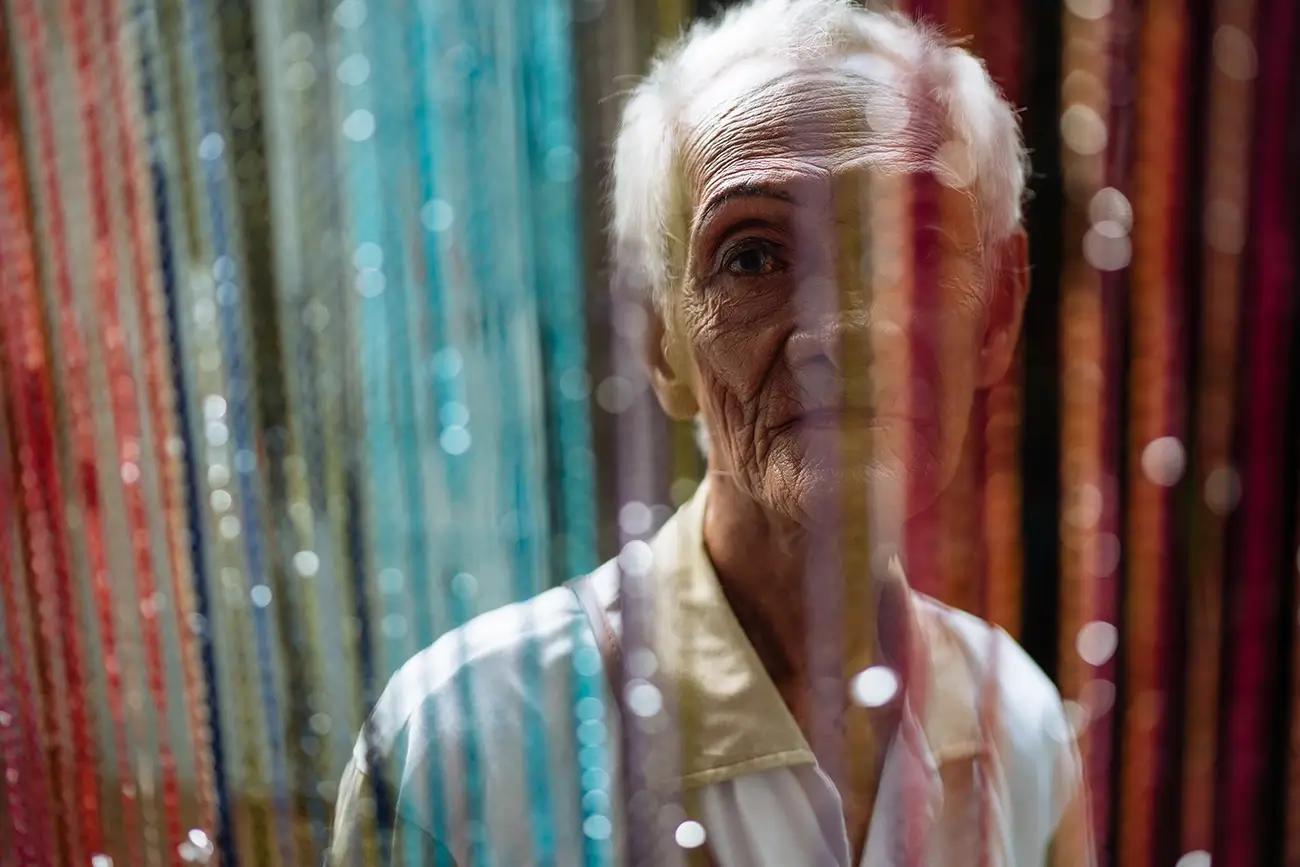
Al Enriquez (86) looks through a curtain in the Golden Gays’ home in Manila, the Philippines, on 18 July 2022 from the project Home for the Golden Gays © Hannah Reyes Morales, for The New York Times
The Golden Gays is a community of older LGBTQI+ people from the Philippines who have lived together for decades, sharing a home, caring for each other as they age, and staging shows and pageants to make ends meet.
The Golden Gays community was founded in the 1970s by lawyer and activist Justo Justo, who opened his home to shelter ‘lolas’ – a local word for ‘grandmothers’, an affectionate term members of the group have adopted. When Justo died in 2012, the community were evicted and some experienced homelessness until 2018, when they began renting a house in Manila.